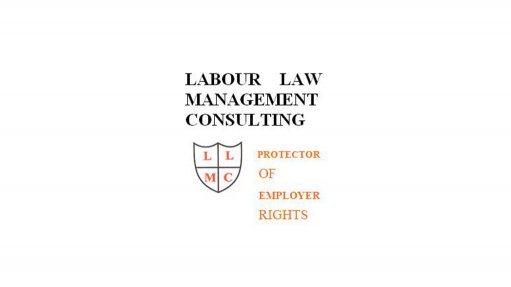
Over the past two months my articles have examined the labour law term ‘unfair’. . I suggested that the act of an employer would be seen in labour law to be ‘unfair’ if it infringes the employee’s rights, is one-sided, unnecessary and/or inappropriate under the circumstances. I also warned that it is extremely difficult for employers and employees to decide when the courts will judge an act to be unfair.
An excellent example of this difficulty is evidenced in the case of Modise and others vs Steve’s Spar Blackheath (2000 5 BLLR 496). In this case there was no doubt at all that the strike in question was an illegal one and was therefore unprotected from dismissal. The employer therefore, after giving the requisite ultimatum, dismissed the employees who had failed to heed the ultimatum to return to work. As the strike was undoubtedly illegal and management had given the ultimatum the employers had no doubt that the dismissal would be considered by the court to be fair. But how wrong they were.
In this case the four employees of Steve’s Spar embarked on an illegal strike together with other employees. The strike, which lasted for 9 days, was found by the court to be illegal because the legally prescribed pre-strike procedures had not been adhered to by the employees.
The four employees who referred the unfair dismissal dispute had claimed that:
- The strike was not illegal
- They had not been given a proper ultimatum before being dismissed
- Six other employees who participated in the strike had not been dismissed
- They had not been given a hearing where they would have had an opportunity to defend their actions before being dismissed.
The employer pointed out that it had rightly dismissed the four employees when the employees ignored the ultimatum to return to work. The employer also argued that there was no need for a hearing before firing illegal strikers as long as a fair ultimatum was given as was the case here.
Two of the three Labour Appeal Court judges disagreed with the employer and found that even illegal strikers were entitled to a hearing before being dismissed. The fact that one of the three judges (Conradie) dissented with this finding illustrates the contentious nature of the Court’s decision. The Court stated that the “audi alteram partem” rule applied in all cases of dismissal. “Audi alteram partem” means ‘hear the other party’. This is a deeply entrenched principle requiring any accuser to give the accused a chance to be heard before carrying out punitive measures. It is of particular relevance in dismissal cases because of the severe consequences for employees of losing their jobs.
The Court pointed out that Schedule 8 of the Labour Relations Act (LRA) requires employers to call in the trade union and discuss the unprotected strike. The Court believed that it is implied that, where there is no union, the discussion should take place between the employer and strikers. The court said that, even if, due to the strike circumstances, it was not practical to hold a formal hearing, the employer should find a way of giving the employees a chance to be heard.
As this had not happened the Court found the dismissal to be unfair and ordered the employer to reinstate the employees with six months back pay.
This is a case where the employer believed it had done all the right things and that it was on firm ground, only to have the rug pulled out from under it.
Despite the well known finding in the Steve’s Spar case other employers have dismissed strikers without a hearing when the strike has been believed to be unprotected. Examples of this are the cases of Karras trading as Floraline vs SASTAWU and Others (2001, 1 BLLR 1 LAC ), TGWU and Others vs Coin Security Group (Pty) Ltd (2001, 4 BLLR 458 LC) and FAWU and Others vs Early bird Farm (Pty) Ltd (2003, 1 BLLR 20 LC). In each of these cases the employer failed to follow the correct procedures for dismissing strikers and paid a very heavy price.
The result of these cases has been that many employers have been reluctant to dismiss strikers even if it is evident that the strike is unprotected. This has given employees and trade unions the upper hand.
However, companies cannot be properly managed by employers who are scared of the law and who therefore meekly accept unprocedural strikes. Employers who want to avoid being intimidated by the law and who want to stop being controlled by trade unions and striking workers need to revisit their strategies for dealing with industrial action. This includes:
- Understanding that the legal definition of strikes includes more subtle forms of industrial action including go slows
- Understanding how to prove that unprocedural strike action is occurring
- Ensuring that replacement labour is available in case of a strike
- Acquiring the specialist expertise necessary to know how to go about dismissing unprocedural strikers so that they stay dismissed.
To book for our Johannesburg seminar on AVOIDING WORKPLACE REVOLUTION on 17 October 2014 please contact Ronni on 0845217492, (011) 782-3066 or ronni@labourlawadvice.co.za.
Written by BY lvan lsraelstam, Chief Executive of Labour Law Management Consulting. He may be contacted on (011) 888-7944 or 0828522973 or on e-mail address: ivan@labourlawadvice.co.za. Web address: www.labourlawadvice.co.za.
This article first appeared in The Star.